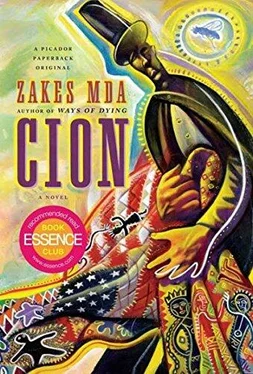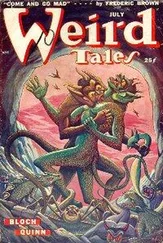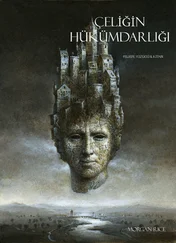The singing sycamore was haunted. Not because it was a ghost tree but for the well-known fact that it harbored in its soul the spirits of little children who once sat under it listening to stories and telling their own eons before the world was killed. These were spirits waiting to be reunited with all the children from the tribes of the universe on a regenerated earth that would be free of sickness and death; an earth where man, woman and child would roam free, owned by no one. When the trills from Nicodemus’s flute became multiplied as if many flutes were playing, people knew that the voices of the little children had merged with the slurs and staccatos of his flute. So, the singing sycamore was a singing sycamore after all.
This hollowed sycamore hid another important secret in its heart. Provisions for the road. Dried fruit. Knives. Ropes. Tinder. Lots of tinder. Flint. Pairs of old socks. Rags. Odds and ends of tools and mementos. Just as the Monkey Wrench design cautioned. And all these were wrapped in two bundles of quilts. One a crazy quilt and the other a sampler. Tied securely with ropes. Waiting for the day when the boys would up and go. No one knew when that day would be. It would not be during that winter though; the Abyssinian Queen was certain of that. She had drummed it into the boys’ heads that winter escapes were hard. The boys would therefore be prudent enough to wait for the next round of slave stealers and Underground Railroad conductors who would come in spring or summer transmitting secret messages through spirituals and merging with the worshippers in the run-down barn that the Africans used as a place of worship and subversion. The Queen did not trust they would be safe on their own, and they had solemnly promised that they would wait, although no one knew when the stealers would be back in the region.
In any event escape was not a priority on the boys’ minds at that time. Nicodemus had started his duties as a stud and was enjoying it. The older studs were telling him that the self-satisfied smirk on his face would wear off and be replaced by deep lines of pain as soon as the awareness dawned in his head that copulating with unwilling females was not the greatest thing on earth unless one had the mindset of a rapist.
While Nicodemus was romping about the mating bays, Abednego was in love. He had fallen for a spindly legged and heavily freckled Irish girl from the new stock recently imported to Fairfield Farms for the purpose of breeding more mulattos. The young man was having sleepless nights thinking about this girl, and the occasions were very rare when he could steal a few moments with her since there was heavy security around these young women. They were in the process of being “processed,” which meant that some of them would be indentured workers while others would be outright slaves, depending on the ancestry that The Owner would be able to manufacture for them. But whatever title they carried, they would all be breeders of future generations that would meet the demands of the market. It was a fate that Abednego did not want to see befall his beloved. He knew, of course, that he had no control over the matter. His mother had warned him about the folly of falling in love and of ever believing that love and possession had the same meaning.
One night…deep in the night…the moonlight turned snow flurries into spirited flakes of silver. The moment caught the boys fooling around in front of their mother’s cabin with their mouths open and tongues hanging out to catch the flakes as they floated in the air before landing on the ground where they instantly melted. The guards and their dogs took shelter in the sheds and barns or sat in front of a log fire in the guardhouse telling tall tales. They would not be bothered with boys prancing about in the moonlight in any case. Unless they were contravening some of the strict rules on which The Owner, compassionate as he was, was not willing to compromise — such as drumming, which was prohibited to the extent that even at church services the Africans had now substituted handclapping. Although the boys were already in their teens, to the inhabitants of the cabins they were children — boys who would always be boys. So, everyone left them in peace to gambol and fool around and play with the flurries and get impatient with them for not piling up into real snow that would make the whole landscape ghostly white.
And then a specter materialized from one of the cabins. It was not white as specters are wont to be, but was draped in a black cape that went down to the ankles, and wore heavy black boots and a black wide-brimmed floppy hat. The specter looked to the left and to the right and then gingerly walked away from the cabin. When it saw the boys it seemed to panic, turned back to the cabin, but then again changed its mind and boldly walked away. The deliberate gait was familiar. So was the face under the floppy hat. The specter was none other than the lady of the house — Madame Fairfield, as she now demanded to be called. The boys knew immediately that their eyes had no right to see what they had seen. They ran to hide inside the trunk of the ghost tree. But of course she had seen them and knew who they were. And she knew that they knew exactly what had been happening in that cabin at that time of the night. They were smart enough to deduce that while The Owner was carousing in Charleston after a successful auction of prime slave stock, the lady of the house was giving goodies to an African slave. They had seen the man, newly imported from Louisiana on a trip the Fairfields took to explore prospective business ventures and spend some time holidaying with their children. Apparently the lady of the house had spotted the sinewy specimen at an auction of slaves newly smuggled from the Caribbean in contravention of the prohibition of such importations. She had suggested to The Owner that they bid for the African since he would infuse new blood into their mostly inbred stock. An import like this would also silence the jealous neighbors who had been spreading rumors that Fairfield Farms was selling unhealthy slaves. Through his wife’s persistence The Owner ended up paying a lot of money for the African, even though he really did not see the need to infuse any new blood into his stock. Inbreeding had never been an issue before this, and he had long dismissed the accusation that he was flooding the markets with syphilitic slaves with the contempt it deserved. He attributed these newfangled ideas on inbreeding to the new literature that his wife had taken to reading. But then everyone knew that the lady of the house always got what she wanted.
The man was allocated a two-room cabin all to himself. At first no one thought much of this because the man was quite exotic. He didn’t even speak English but some version of French. And he was mysterious; no one knew where he came from or why he was there. If he was going to be a stud at all why was he never seen at the mating bays? Why did he prefer to keep to himself? Why did house slaves take daily supplies of food to his cabin? Now the boys knew the answers to these questions: he was Madame Fairfield’s special plaything. And that knowledge was dangerous to their lives. Unlike the guards who patrolled the grounds, and must have known about the lady’s nocturnal naughtiness but knew better than to betray her secret to anyone, she could not trust the boys to respect the virtues of silence. They were too immature and naive to know anything about discretion.
The next day the boys were summoned to the big house. The lady of the house was sitting on the porch drinking tea with cake like some fancy English lady. Despite the heavy fur coat she was wearing the boys didn’t understand why anyone would want to have tea and cake outside in cold weather like that. But they put it down to the eccentricities of the rich. Indeed she had developed strange habits ever since she started reading Godey’s Lady’s Book to which she subscribed ostensibly for the stories of Edgar Allan Poe, which were occasionally published in the journal, but in reality for the tips on womanhood and for the elaborate colorful fashion plates that were beginning to influence the way she dressed. Of course, the hoi polloi of Fairfield Farms would not have known what inspired her current refinement, piety and purity.
Читать дальше












